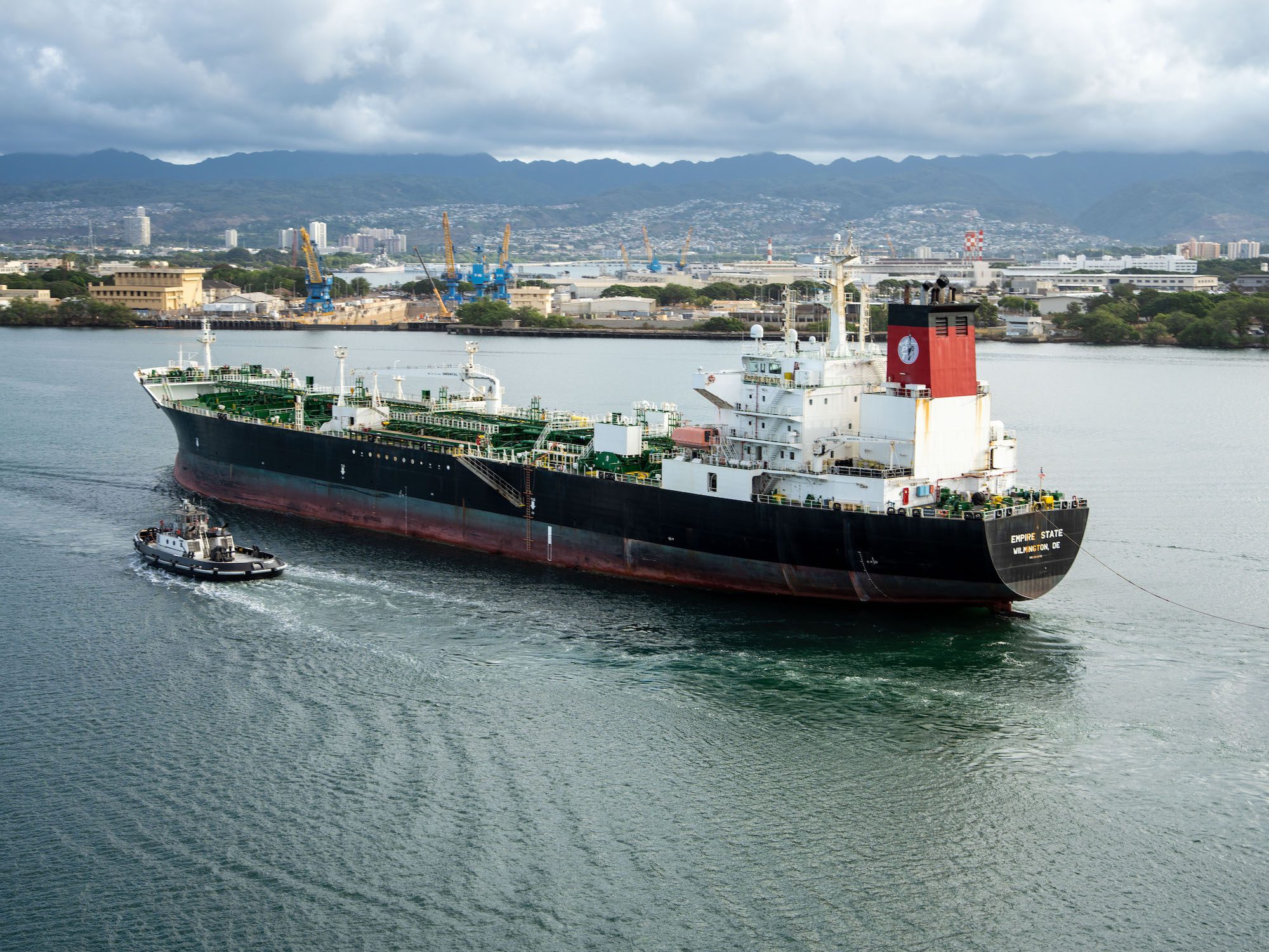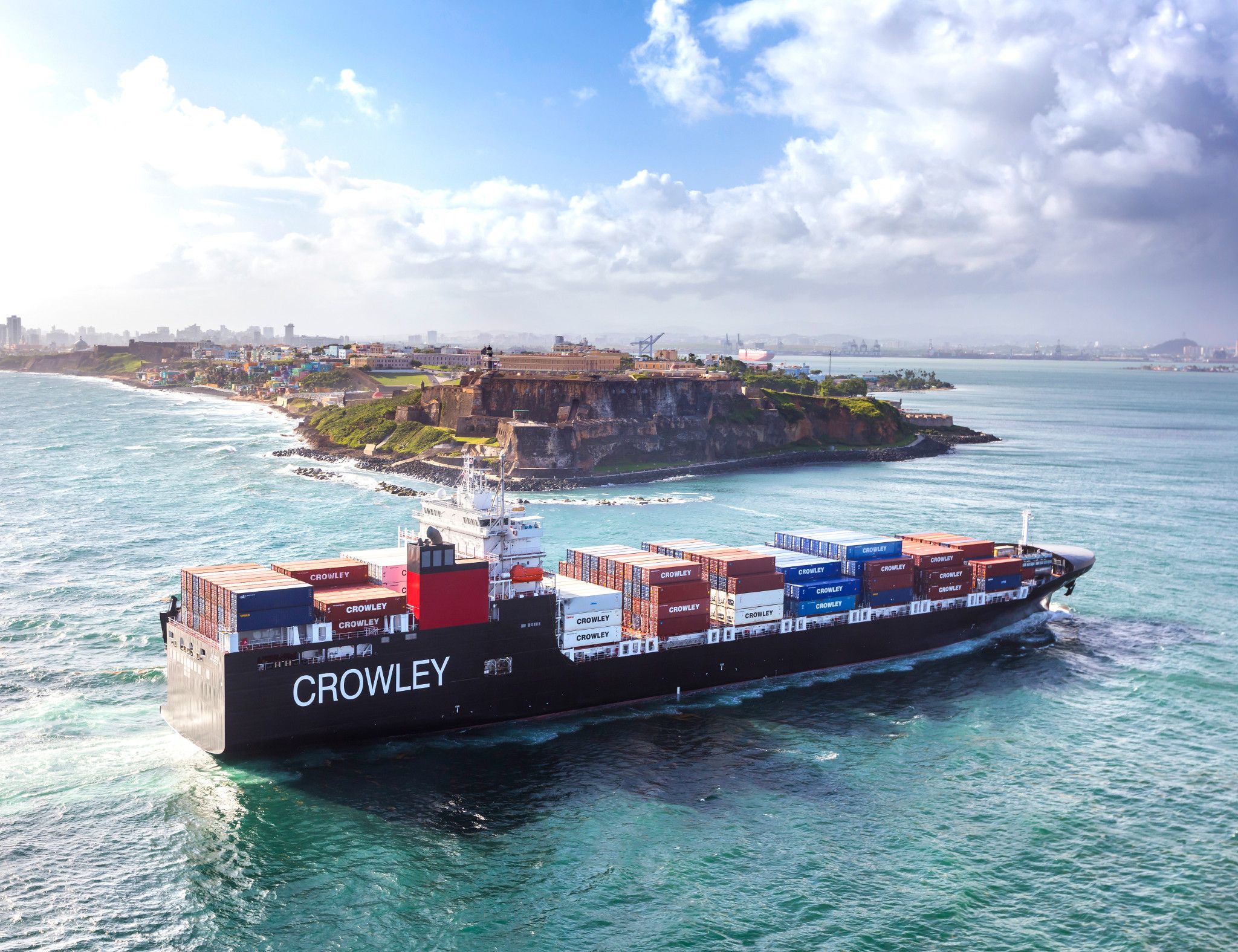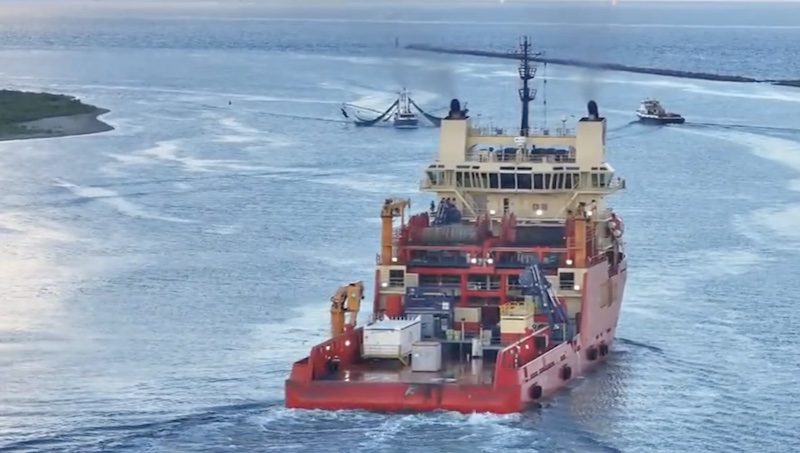The U.S. Department of Defense has officially started defueling operations at the Red Hill Bulk Fuel Storage Facility (RHBFSF), it’s largest fuel storage facility located at Joint Base Pearl Harbor-Hickam in Honolulu, Hawaii.
Led by Joint Task Force-Red Hill (JTF-Red Hill), the Department aims to drain and remove approximately 104 million gallons of fuel stored in the facility after a 2021 leak contaminated local drinking water.
The defueling process will involve utilizing pipelines that run through approximately three miles of tunnels, leading to a pier situated at Joint Base Pearl Harbor-Hickam. The fuel will then be loaded onto tankers and transported to existing Defense Fuel Support Points.
Deputy Secretary of Defense Kathleen Hicks emphasized the Department’s commitment to safeguarding the environment and protecting the health of the people in Hawaii. “Beginning the defueling process earlier than initially planned is a testament to the Department’s commitment to safeguarding the aquifer and protecting the health of the people in Hawaii,” said Hicks.
The Military Sealift Command-chartered MT Empire State arrived off the coast of Oahu, Hawaii last week to begin the defueling operation.
Coordination and approval for the defueling plans have been obtained from both the Hawaii Department of Health (DOH) and the U.S. Environmental Protection Agency (EPA). The entire defueling process is expected to take approximately three months, with completion set for mid-January 2024.
“After months of planning, preparing and rehearsing, we are ready to begin defueling Red Hill and set the conditions for its closure,” said Vice Adm. John Wade, JTF-Red Hill Commander. “We listened to the community and have taken significant precautions to mitigate risk and protect the aquifer and the environment as we safely and expeditiously defuel the facility.”
Constructed in the early 1940s to provide fuel storage for the US military during World War II, the Red Hill Bulk Fuel Storage Facility is the Department of Defense’s largest bulk fuel storage facility, capable of storing up to 250 million gallons of fuel in 20 tanks located 100 feet underground. Following a major leak in November 2021 that polluted the principal aquifer for the City and County of Honolulu, the Department of Defense committed to the safe and expedited defueling, closure, and decommissioning of the facility’s underground fuel storage tanks.
Originally scheduled for 2024, the defueling timeline was accelerated through a collaborative process involving the Department of Health, the Environmental Protection Agency, and the Department of Defense.
The closure process is expected to span several years once defueling is complete.
Meanwhile, the Defense Health Agency (DHA), in collaboration with the Office of the Assistant Secretary for Health Affairs, continues to provide healthcare services to military families and residents impacted by the incident.
Unlock Exclusive Insights Today!
Join the gCaptain Club for curated content, insider opinions, and vibrant community discussions.

 Join The Club
Join The Club













